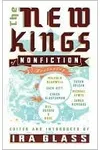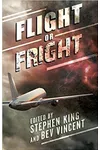Picture an American storyteller who turned Wall Street’s chaos into gripping tales—meet Michael Lewis! With a knack for uncovering the human side of complex systems, Lewis has penned bestsellers like Liar’s Poker and The Big Short, blending sharp wit with razor-sharp insights. His books don’t just inform—they captivate, making finance, sports, and tech feel like page-turning adventures.
Born in New Orleans, Lewis didn’t start as a literary star. His journey from bond salesman to global author is as compelling as his narratives, proving he’s a master at spotting stories where others see only numbers.
The Making of Michael Lewis
Michael Lewis was born on October 15, 1960, in New Orleans, Louisiana, where a vibrant cultural backdrop shaped his early years. He studied art history at Princeton, then earned a master’s in economics at the London School of Economics. But academia wasn’t his calling. In the 1980s, Lewis landed at Salomon Brothers, a Wall Street giant. The absurdity of high finance sparked his first book, Liar’s Poker (1989), a witty exposé that launched his writing career. His outsider’s perspective and knack for storytelling set him apart from the start.
Michael Lewis’s Unforgettable Stories
Lewis’s books are more than non-fiction—they’re cinematic narratives that humanize complex systems. Liar’s Poker peeled back the curtain on Wall Street’s greed-soaked 1980s, blending humor with critique. Moneyball (2003) revolutionized how we view baseball, spotlighting data-driven strategies through the Oakland A’s underdog story. The Big Short (2010) made the 2008 financial crisis accessible, turning obscure credit swaps into a thrilling saga of misfits and mavericks. Flash Boys (2014) tackled high-frequency trading, exposing how tech reshaped markets.
His style is deceptively simple: vivid characters, clear prose, and a knack for finding drama in data. Lewis doesn’t preach; he lets his subjects—whether traders, coaches, or coders—reveal universal truths. Themes of ambition, innovation, and systemic flaws run through his work, making each book a lens on modern life.
Why Michael Lewis Matters
Michael Lewis redefined non-fiction, making dense topics like finance and analytics accessible and entertaining. His books have shaped public understanding of major events, from the 2008 crash to baseball’s data revolution. Films based on his work, like The Big Short and Moneyball, brought his stories to wider audiences, earning critical acclaim. Lewis’s ability to spotlight unsung heroes and hidden systems inspires readers to question the world around them.
Beyond sales, his influence lies in clarity. In an age of information overload, Lewis distills chaos into stories that stick, earning him a loyal following and respect from critics and industry insiders alike.
About Michael Lewis
- Born: October 15, 1960, New Orleans, Louisiana
- Key Works: Liar’s Poker, Moneyball, The Big Short, Flash Boys
- Awards: Multiple bestselling books, adapted into Oscar-nominated films
Ready for a literary adventure? Snag Moneyball or The Big Short and dive into Michael Lewis’s brilliant world of wit and wisdom!





















